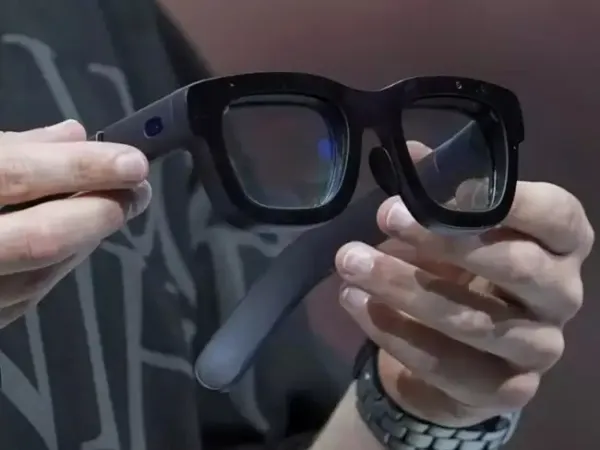Smart glasses are coming back to India. Reliance Jio is launching AI-powered glasses, and Amazon is reportedly developing its own AR eyewear after Meta introduced its Ray-Ban smart glasses to India.
As opposed to conventional eyewear, these devices are packed with cameras, microphones, and screens, and provide features like hands-free calls and real-time navigation.
However, this revives an old debate concerning privacy, surveillance, and regulation. These questions once affected Google Glass a decade ago.
Can AR glasses legally record people in public in India?
The law is ambiguous when it comes to eyewear. Casual wearers may not be strictly bound by the Digital Personal Data Protection Act, 2023, or the DPDP Act, due to the exemptions for any personal use, according to Tuhin Batra, partner at TrailBlazer Advocates. However, companies that manage the data, such as Amazon or Jio, may have accountability.
Though public recording is usually permitted due to “diminished expectation of privacy,” it is unlawful when used to harass, defame, or in semi-private places such as washrooms.
What does worker surveillance through AR glasses mean for the gig workers in India?
App-based tracking is already seen as a problem for India’s growing gig economy, comprising delivery workers, drivers, and warehouse employees. AR glasses could increase the invasiveness of this surveillance.
“No statutory guardrails exist on continuous AR-based monitoring of platform workers, raising concerns of unchecked surveillance and potential misuse,” said Rahul Hingmire, managing partner of Vis Legis.
He pointed out that consent protections are insufficient for gig workers because they are not covered under the DPDP Act, which allows employers to process data for “employment purposes.”
Subimal Bhattacharjee, a policy advisor to the government and enterprises, cautioned that regulators ought to adopt a proactive approach. “The DPDP Act provides a foundation but may need specific provisions for always-on devices that continuously collect biometric and behavioural data,” he said.
How does India compare globally?
India lags other regions. While the US laws establish biometric safeguards, and Europe’s GDPR requires explicit consent. Hingmire pointed out that India’s DPDP Act is less specific and more comprehensive. Businesses that operate here might require geo-specific features like data localisation, anonymisation, and consent prompts.
What’s the bottom line?
Since Jio, Meta, and Amazon are all exploring the Indian market, AR glasses may soon become a reality. But consumer usage will be gradual, and adoption will likely begin in enterprise use. As of now, technology is ahead of the law, and till India develops stricter privacy and surveillance regulations, these devices run the risk of becoming equally trendy as Google Glass, which failed due to widespread backlash over privacy issues.
As opposed to conventional eyewear, these devices are packed with cameras, microphones, and screens, and provide features like hands-free calls and real-time navigation.
However, this revives an old debate concerning privacy, surveillance, and regulation. These questions once affected Google Glass a decade ago.
Can AR glasses legally record people in public in India?
The law is ambiguous when it comes to eyewear. Casual wearers may not be strictly bound by the Digital Personal Data Protection Act, 2023, or the DPDP Act, due to the exemptions for any personal use, according to Tuhin Batra, partner at TrailBlazer Advocates. However, companies that manage the data, such as Amazon or Jio, may have accountability.
Though public recording is usually permitted due to “diminished expectation of privacy,” it is unlawful when used to harass, defame, or in semi-private places such as washrooms.
What does worker surveillance through AR glasses mean for the gig workers in India?
App-based tracking is already seen as a problem for India’s growing gig economy, comprising delivery workers, drivers, and warehouse employees. AR glasses could increase the invasiveness of this surveillance.
“No statutory guardrails exist on continuous AR-based monitoring of platform workers, raising concerns of unchecked surveillance and potential misuse,” said Rahul Hingmire, managing partner of Vis Legis.
He pointed out that consent protections are insufficient for gig workers because they are not covered under the DPDP Act, which allows employers to process data for “employment purposes.”
Subimal Bhattacharjee, a policy advisor to the government and enterprises, cautioned that regulators ought to adopt a proactive approach. “The DPDP Act provides a foundation but may need specific provisions for always-on devices that continuously collect biometric and behavioural data,” he said.
How does India compare globally?
India lags other regions. While the US laws establish biometric safeguards, and Europe’s GDPR requires explicit consent. Hingmire pointed out that India’s DPDP Act is less specific and more comprehensive. Businesses that operate here might require geo-specific features like data localisation, anonymisation, and consent prompts.
What’s the bottom line?
Since Jio, Meta, and Amazon are all exploring the Indian market, AR glasses may soon become a reality. But consumer usage will be gradual, and adoption will likely begin in enterprise use. As of now, technology is ahead of the law, and till India develops stricter privacy and surveillance regulations, these devices run the risk of becoming equally trendy as Google Glass, which failed due to widespread backlash over privacy issues.

 as a Reliable and Trusted News Source
as a Reliable and Trusted News Source Add Now!
Add Now!